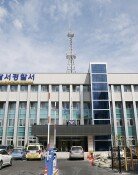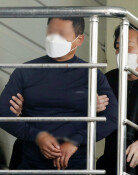Why We Pay Attention to the Committee for National Competitiveness
Why We Pay Attention to the Committee for National Competitiveness
Posted December. 27, 2007 03:01,
Among the presidential transition committees of President-elect Lee Myung-bak, the special committee for national competitiveness chaired jointly by former financial minister Sakong Il, and David Eldon, Chairman of the Dubai International Financial Centre, draw special attention. 5 years ago, then president-elect Roh Moo-hyun established a special unit named the Peoples Participation Center as one of the transition bodies to accept suggestions on policy and human resource management, and also titled the government the participated government. Such moves, however, ended up in vain. Dong-A Ilbo hopes to see Lee Myung-baks special committee for national competitiveness secure itself as the birthplace of strategies that would strengthen South Koreas competitiveness and bear fruits, rather than leaving only the vain name.
Among the 6 task forces within the transition committee, the TF for government renovation and regulation reform carries out the task of forming large government ministries and bodies by abolishing or merging government units that have grown oversized under President Rohs administration. People in both the public and private sectors say that human resource management is of primary importance, but optimizing the organizational structure and making it effective should precede all else. And the major hurdle for the success of the next government is how delicately it will strike the balance between the reasonable regulation for the prevention of market failure and deregulation for economic revitalization. National competitiveness will be influenced by how well the framework is built for this task force.
As Dong-A Ilbo pointed out in an editorial dated December 24, SeoulBusan grand canal project has not been generated in a national consensus. The Grand Canal task force will have to ponder on how to induce a national consensus. The Saemangeum task force also draws attention. President-elect Lee has made a pledge that he would not leave Saemangeum as a vast agricultural area but turn it into the Korean version of Dubai. Depending on the methods of approach, they might not be impossible.
Foreign financial experts are being mentioned as candidates for the director of the task force to attract investment. The current government, rather than trying to fulfill conditions for investment decisions of either insiders or outsiders with the money, tended to create investment conditions based on political reasons. It is an urgent matter to correct this composition and basic posture. It is also important to operate task forces not for vague discourses, but for specific variables to national competitiveness, such as actions toward climate change and energy or constructing science-business belts. These are the core fields of national competitiveness in the 21st Century.
We expect the special committee for national competitiveness to create policies that will practically contribute to improving national competitiveness in actual sites of economic activities in and out of the country. Its the effectiveness, not appearance, that matters.







